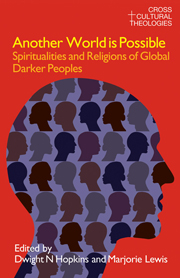Book contents
- Frontmatter
- Dedication
- Contents
- Acknowledgements
- Contributors
- Introduction
- Part I India
- Part II Japan
- Part III Australia
- Part IV Hawaii
- Part V England
- Part VI South Africa
- 9 “Impoverished on Harvesting Ground!”: Ruth 3 and African Women in an HIV-Positive South Africa
- Part VII Botswana
- Part VIII Zimbabwe
- Part IX Ghana
- Part X Cuba
- Part XI Jamaica
- Part XII Brazil
- Part XIII USA
- Endnotes
- Select Bibliography
- Index of Subjects
- Index of Names
9 - “Impoverished on Harvesting Ground!”: Ruth 3 and African Women in an HIV-Positive South Africa
from Part VI - South Africa
- Frontmatter
- Dedication
- Contents
- Acknowledgements
- Contributors
- Introduction
- Part I India
- Part II Japan
- Part III Australia
- Part IV Hawaii
- Part V England
- Part VI South Africa
- 9 “Impoverished on Harvesting Ground!”: Ruth 3 and African Women in an HIV-Positive South Africa
- Part VII Botswana
- Part VIII Zimbabwe
- Part IX Ghana
- Part X Cuba
- Part XI Jamaica
- Part XII Brazil
- Part XIII USA
- Endnotes
- Select Bibliography
- Index of Subjects
- Index of Names
Summary
Blackness, Femaleness and the Christian Bible: Reminiscing on the South African Political Past
If there is any country in the world whose political history has been greatly shaped by the race factor, it is South Africa. In this country, the policy of apartheid was used to support the claim that people of different races not only needed to develop separately, but also needed to receive different treatment. The latter, then, depended on one's skin colour. As can be expected, preferential treatment was given to the South African white minority. The darker one's skin colour was, the more disadvantaged one became. Worthy of note for the present text is the painful observation that the Christian Bible, a book which is still highly esteemed in many African-South African Christian circles, was also used to support such an erroneous claim.
Having been born during the heydays of apartheid, one still has vivid memories of how repressive the status quo of the time was to Black peoples. Being Black meant the following among others: no citizenship to the country of one's birth, a heathen, a human being whose education was geared at serving members of the minority yet dominant race, to name but a few. As can be expected, being born a Black female meant being pushed even further to the margins. African female persons were not only marginalized by African patriarchy, but also the sexist, racist apartheid regime and the patriarchal religion of the state. All served to exacerbate the situation of these women.
- Type
- Chapter
- Information
- Another World is PossibleSpiritualities and Religions of Global Darker Peoples, pp. 135 - 142Publisher: Acumen PublishingPrint publication year: 2009



